
Rehab Treatment near Bedfordshire
Dealing with an addiction can feel like the most difficult challenge there is. If you or a loved one are faced with this scenario, your best option is to seek treatment. Thankfully, there is a wide range of addiction treatment and rehab options in and around Bedfordshire.
With the right help, you can fully recover and rebuild your life.
Rehab isn’t the only option for addiction treatment, but it is the default route for many as it’s highly effective. Being treated in an inpatient facility means you’ll have access to all the medical and psychological care needed to ensure complete recovery.
From Luton to Bedford, there’s no shortage of rehab facilities to explore. Whether you’re in need of a low-cost option or something more exclusive, you can easily find the right treatment programme for you. There are also support groups such as Narcotics Anonymous (NA) and Alcoholics Anonymous (AA), with a significant presence dotted across the county.
 Services offered by Banbury Lodge Rehab
Services offered by Banbury Lodge Rehab
Banbury Lodge is a rehab operating in a tranquil location in Banbury, Oxfordshire. We provide excellent bespoke rehabilitation services for clients in and around this area.

Some of the services we provide include:
- Drug and Alcohol addiction treatment
- Eating disorder addiction and recovery treatment
- 12 Step Therapy
- Aftercare
- Cognitive Behavioural Therapy
- Individual Therapy
- Family Recovery Programme
- Trauma Therapy
We have a robust team of professionals operating in a world-class facility.
Banbury Lodge is located around 50 miles away from Bedfordshire. It is just over 1 hours drive via M1. We provide sober transportation service for anyone that needs it.
 Where is Banbury Lodge Based?
Where is Banbury Lodge Based?
Pros and Cons of Private Rehab?
- Immediate admission 365 days a year
- Medical detox with 24/7 care & support
- Overcome the root causes of addiction
- Experienced team of doctors & therapists
- Personalised rehabilitation programme
- Fitness and nutrition programme
- Look, feel, sleep better & regain confidence
- Learn techniques for relapse prevention
- 1 year complimentary aftercare support
- Price can be a barrier which needs to be weighed up versus the long-term cost of drug and alcohol abuse
- Being away from friends and family which at first can be emotionally challenging
 What Does Rehab Cost?
What Does Rehab Cost?
Detox and rehab start from £1,850* to £3,625* per week, depending on treatment length and clinic chosen.
Prices may vary depending on individual treatment needs and the chosen clinic. Please contact us for a personalised quote. ** Terms and conditions apply.
To find out further information on the cost of rehab enter you number below and one of our team will call you back
NHS Addiction Treatment
The NHS suggests you start looking for treatment options at your GP’s office. They should be able to point you in the right direction – this includes local addiction treatment services that may be free. The NHS does not run its own addiction treatment facilities, but can refer you for treatment to a private rehab centre.
However, there is typically a waiting list for treatment with the NHS. There is no telling how far down that waiting list you might be or if your local health authority would be willing or able to pay for your treatment. The NHS does provide a directory to help you find services in Bedfordshire, via their website.
The NHS is not the only option for free addiction treatment, as there are charities and private addiction treatment organisations that can be of help. One of them is Addaction, which is one of the foremost mental health, alcohol and drug charities in the UK.
SMART Recovery is another option; they focus on a secular and science-based approach. Perhaps more popular are 12-step groups like Alcoholics Anonymous, Narcotics Anonymous and Cocaine Anonymous.
A list of these free services can be found below.
Free NHS Treatment Options in Bedfordshire
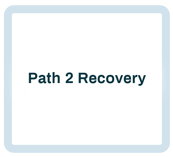
Path 2 Recovery:
Telephone: 01234 352220
Address: 21 The Crescent, Bedford, MK40 2RT - https://www.elft.nhs.uk/service/299/Path-to-Recovery-P2R-Bedford-Borough
P2R is a one stop service which provides drug and alcohol advice, treatment and support to adults whose lives are affected by addiction.
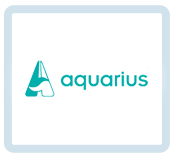
Aquarius: Bedfordshire Young People:
Telephone: 01234 341977
Address: 28-30 Meadway, Bedford MK41 9HU - www.aquarius.org.uk
Young People's service supporting 5 to 19 year olds impacted by substance misuse whether by parental or own use.
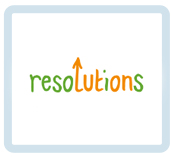
CGL – ResoLUTiONs:
Telephone: 0800 054 6603
Address: 2-12 Victoria Street, Luton, LU1 2UA - www.resolutions4luton.org
ResoLUTiONs is a free and confidential drug and alcohol service for adults, young people and families in Luton.
How to Choose a Recovery Programme
Making the decision to enter rehab is a massive step. To ensure the rest of the journey to recovery is as smooth as possible, make sure you choose the most appropriate recovery programme for you. This decision must be considered carefully, as it is indeed a life-changing one.
Speaking to an addiction treatment expert or your GP is a good way to start. They should be able to help you understand your addiction and the options available for treatment. Before you agree to be treated in any facility, you should ask a range of questions.
For example, find out the duration of the programme, the credentials of the medical team, whether the facility is licensed, and so on. Also, it’s important to consider the cost of treatment; the treatments methods employed; the location of the facility; whether or not they offer treatment for co-occurring disorders; and the philosophy of the treatment centre.
Addiction Support Groups in Bedfordshire

Cocaine Anonymous:
A fellowship of men and women who share their struggles, strength, coping skills and hope with a goal to overcome cocaine addiction. They only require that potential members have a true desire to quit cocaine and other substance abuse. Meetings are held in Luton. You can find more information about meeting dates and times here.
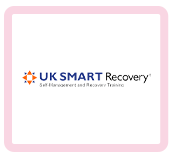
SMART Recovery:
An alternative to 12-step programmes for those who don't believe in a higher deity. This is a science-based programme that helps you manage addictive behaviour and addiction to substances.
Address: School Ln, Carlton, Bedford, MK43 7LF
Telephone: 07587636863
NA meetings in/near Bedfordshire
Narcotics Anonymous (NA) is a non-profit organisation comprising various individuals from different walks of life, who are in recovery from drug addiction.
It is a programme that promotes complete abstinence from all drugs and there are regular meetings in and around Bedfordshire which anyone in recovery can attend.
NA Meetings
3:30pm on Sunday
Hope Church Center
Villa Road
LU2 7NT
12:30pm on Friday
Strathmore Methodist Church, Strathmore Avenue
LU1 3NY
7:30pm on Friday
Committee Room, Bedford Quakers
5 Lansdowne Road
MK40 2BY
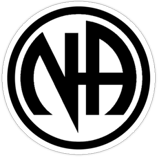
AA meetings in/near Bedfordshire
Alcoholics Anonymous (AA) is an international organisation focused on mutual understanding and support within a group of people suffering from the effects of alcohol addiction. These meetings are mostly attended by alcoholics but some do permit non-addicts.
There are regular meetings throughout Bedforshire including Dunstable, Leighton Buzzard and Luton.
AA Meetings:
Friday 8:00pm
Beacon House
5 Regent St
LU6 1LP
Tuesday 1:00pm
Methodist Church
Strathmore Ave, Park Town
LU1 3NY
Saturday 12:00pm
Crombie House
36 Hockliffe St
LU7 1HJ
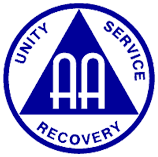
Addiction Counselling in/near Bedfordshire
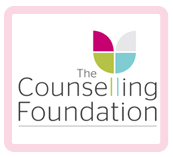
The Counselling Foundation:
Our Luton Centre provides counselling and counsellor training and serves Luton and surrounding areas, including for example Dunstable, Caddington, Slip End, Markyate, Flamstead, Studham, Kensworth, Toddington, Barton-le-Clay, Streatly and Kimpton.
Address: Hilde Eccles House, 70 – 72 Princess Street, Luton, LU1 5AT - https://counsellingfoundation.org/find-a-counsellor/luton/
Phone number: 01582 732450
Travelling to and from Bedfordshire
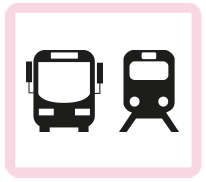
By Road: Travelling to and from Bedfordshire via surrounding counties is relatively easy with the M1 providing routes through Dunstable, Luton and Bedfordshire (via the M1 and A421). To get to Banbury Lodge from Bedfordshire, take the M1 as far as junction 15A then take the A43 (Oxford) towards Brackley, from here you can take the B4525 (Banbury Lane) until you reach our Rehab centre.
By Rail: If you're travelling from London or further afield, Bedford Railway Station provides routes to and from London St Pancras (via the Midland main line). Tickets can be purchased here.
By Bus There is a tramline (Busway) which connects Luton, Dunstable and Houghton Regis both ways. More information about this transport service can be found here.

 Services offered by Banbury Lodge Rehab
Services offered by Banbury Lodge Rehab Where is Banbury Lodge Based?
Where is Banbury Lodge Based? What Does Rehab Cost?
What Does Rehab Cost?

